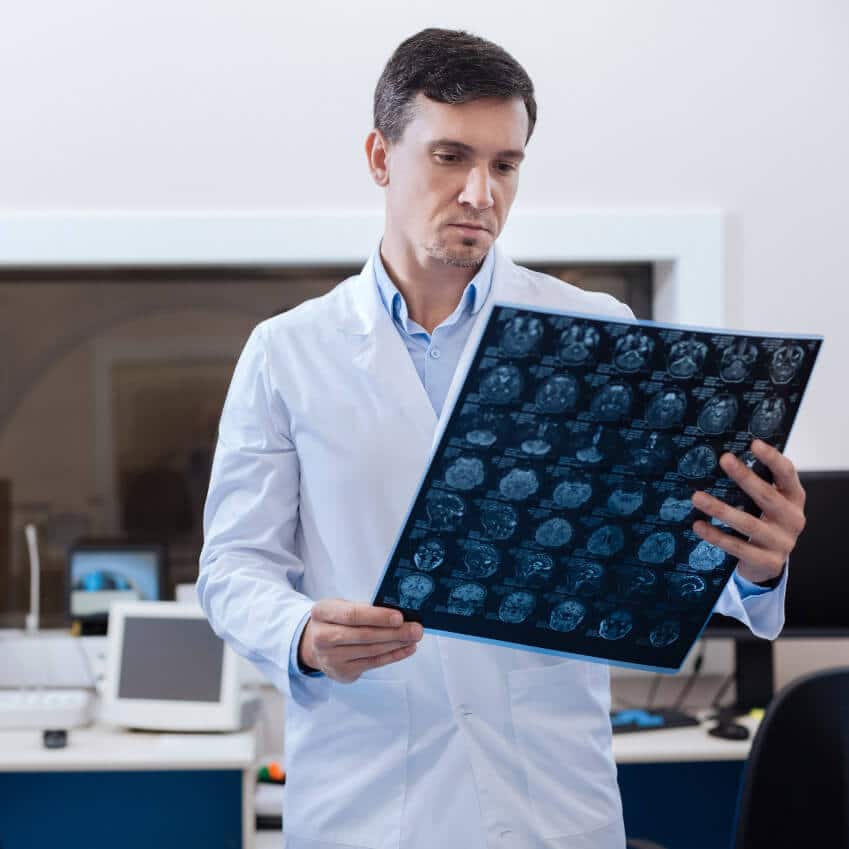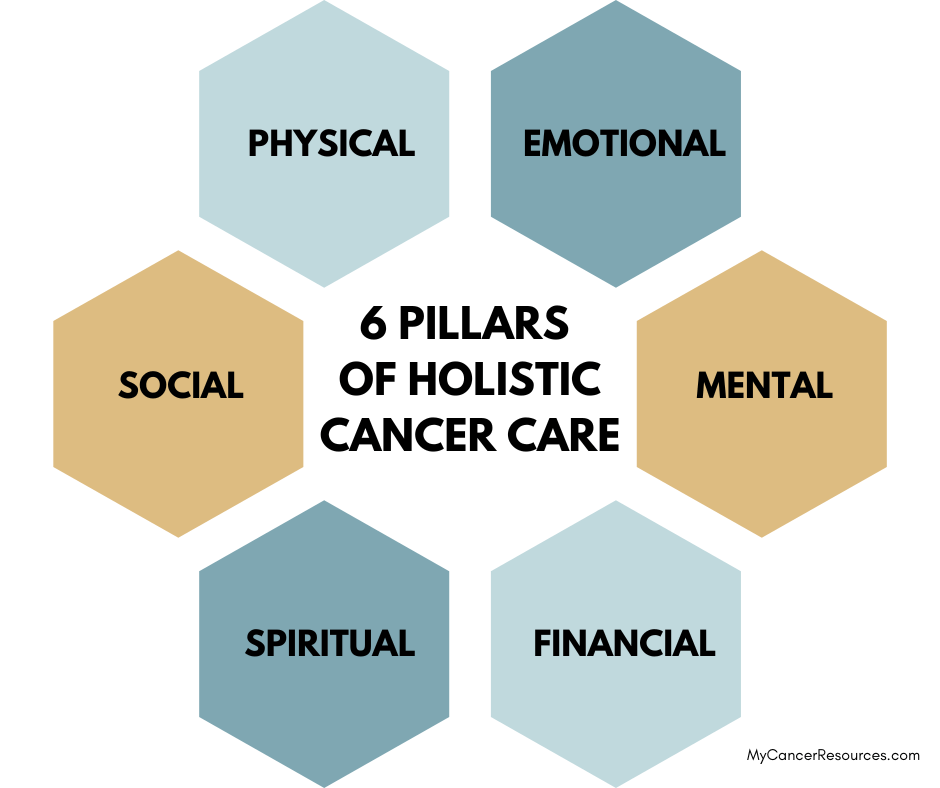With a cancer diagnosis, you’re immediately thrown into a world of unknown specialists and treatment options. This post describes the different types of cancer doctors that you may meet, what they do, and the specialized education they have completed.
Hopefully, this will help you feel more confident as you navigate the world of cancer care.
What is an Oncologist?
An oncologist is a medical doctor who is a cancer specialist.
The oncologist’s role is to develop and implement the best treatment plan for a patient’s cancer. This plan may include one or more of the following:
- Surgery: Some cancers can be treated with surgery to remove tumors or affected tissue.
- Radiation therapy: This treatment uses high-energy radiation to kill cancer cells.
- Chemotherapy: Chemotherapy is a medicine specifically designed to kill cancer cells.
- Immunotherapy: Also called biologic therapy, these drugs stimulate the body’s immune system to fight cancer.
- Hormone therapy: These drugs control the body’s hormone levels to affect tumor growth in hormone-sensitive cancers, such as breast cancer or prostate cancer.
- Targeted therapy: These cancer-fighting drugs target specific proteins and genes that cancer cells need to survive and grow.
Oncologists also monitor your progress throughout treatment and adjust the treatment plan as needed. They also answer questions and provide support to you and your loved ones.
Types of Cancer Doctors
There are different types of cancer doctors you may work with during your cancer journey. These oncologists work as a team to provide you with comprehensive treatment and support.
Medical oncologists treat cancer using medicine, including chemotherapy, targeted therapy, immunotherapy, and hormonal therapy.
They tend to oversee your entire course of treatment, even if you are referred to the surgical oncology or radiation oncology departments.
Surgical oncologists specialize in performing cancer-related surgeries. There are different types of cancer-related surgical procedures, including:
- Diagnostic surgery: A biopsy involves removing a small tissue sample for testing. This can help to confirm a cancer diagnosis and determine the type of cancer.
- Curative surgery: This type of surgery aims to remove all cancerous tissue from the body and is often used in early-stage cancers.
- Palliative surgery: This type of surgery relieves symptoms or improves the quality of life for patients with advanced-stage cancer.
- Reconstructive surgery: Surgical oncologists may also work with plastic surgeons to reconstruct areas affected by cancer surgery.
For example, a surgical oncologist could perform a mastectomy to remove breast tissue. The plastic surgeon begins or completes the breast reconstruction during the same procedure.
Radiation oncologists treat cancer using radiation therapy. They use advanced technology to deliver high doses of radiation to cancerous cells while minimizing damage to healthy cells.
There are two main types of radiation treatment:
- External beam radiation therapy involves a machine that delivers high-energy radiation beams to the cancer site.
- Internal radiation therapy (brachytherapy) involves placing a small radioactive implant near the cancer site.
There are also terms for cancer doctors who specialize in working with specific populations or a specific type of cancer, including:
Pediatric oncologists specialize in the treatment of cancer in children and adolescents. Some young adults stay with their pediatric oncologist for long-term follow-up.
Geriatric oncologists work with people with cancer aged 65 and over.
Gynecologic oncologists treat gynecologic (reproductive organs) cancers, including cervical cancer, ovarian, uterine, vaginal, and vulvar cancers.
Hematologist-oncologists treat blood cancers, such as leukemia, lymphoma, and multiple myeloma.
Hematologist-oncologists also manage complications that can arise during treatment for other cancer patients, such as infections and bleeding disorders.
Urologic oncologists treat cancers of the urinary tract, such as the bladder and kidneys, and cancer of the male reproductive system, including the penis, prostate, and testicles.
Neuro-oncologists treat cancers of the brain, spine, and nervous system.
Thoracic oncologists treat cancers in the chest, such as lung or esophageal cancer.
Education and Training Requirements for Oncologists
Becoming an oncologist requires a significant amount of education and training.
Undergraduate Education
A bachelor’s degree is the first step to becoming a doctor.
While no specific undergraduate major is required for medical school, many aspiring oncologists choose to major in biology, chemistry, or a related field.
Medical School
After completing the undergraduate degree, medical school is next. Medical school typically takes four years to complete.
Clinical training outside the classroom provides hands-on experience in different medical specialties.
Residency
After graduating from medical school, a residency is required. Residencies are two to three years long.
Someone wanting to become a surgical oncologist has a 2-year surgical residency.
Radiation and medical oncology residencies are 3 years long and are either in internal medicine or pediatrics.
Fellowship
Following residency is an oncology fellowship that takes about two more years.
Residents work under the supervision of experienced oncologists and gain experience in treating patients with various cancer types.
They may also conduct clinical trials or other cancer research projects.
Licensing and Board Certification
After completing their fellowship, oncologists must pass their licensing and board certification exams. These credentials allow them to practice medicine without additional supervision.
Continuing education is also required for an oncologist to keep their medical license.
Oncologists regularly attend additional training throughout their careers to stay up-to-date on the most advanced treatments in the field of oncology.
Conclusion
There are many types of cancer doctors, and you may interact with multiple oncologists depending on your treatment plan.
Oncologists will regularly gather labs and conduct routine tests and follow-up scans to determine how your cancer has responded to treatment. They may change or stop a certain type of treatment if it is not working.
Oncologists can provide a wealth of information about your specific type, stage, and grade of cancer, treatment options, and what to expect throughout the process, including side effects of treatment.
You’ll work very closely with your oncologist(s) as you decide which path to take.
Other blog posts discuss additional providers on cancer care teams. These specialists, including the oncology nurse, social workers, nurse navigators, and dieticians, work with oncologists as a multidisciplinary team of experts to provide comprehensive cancer care and support services to you and your family.



